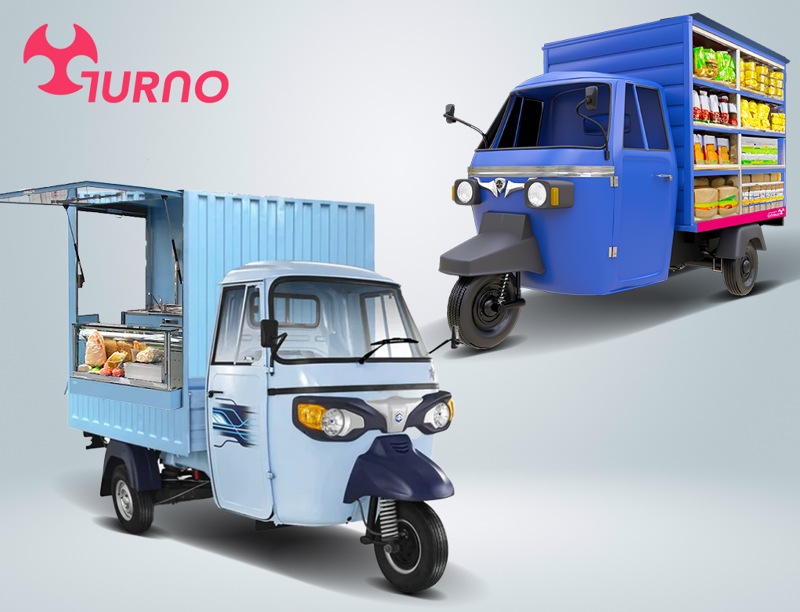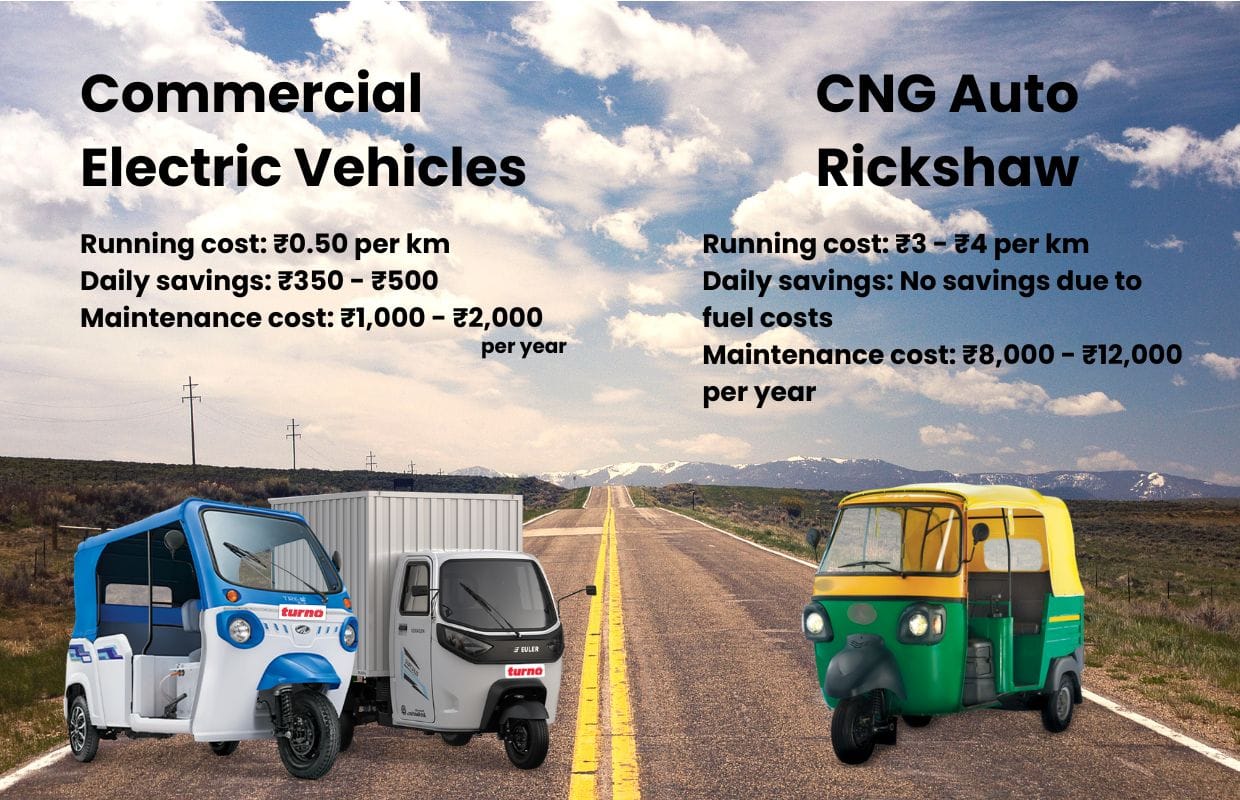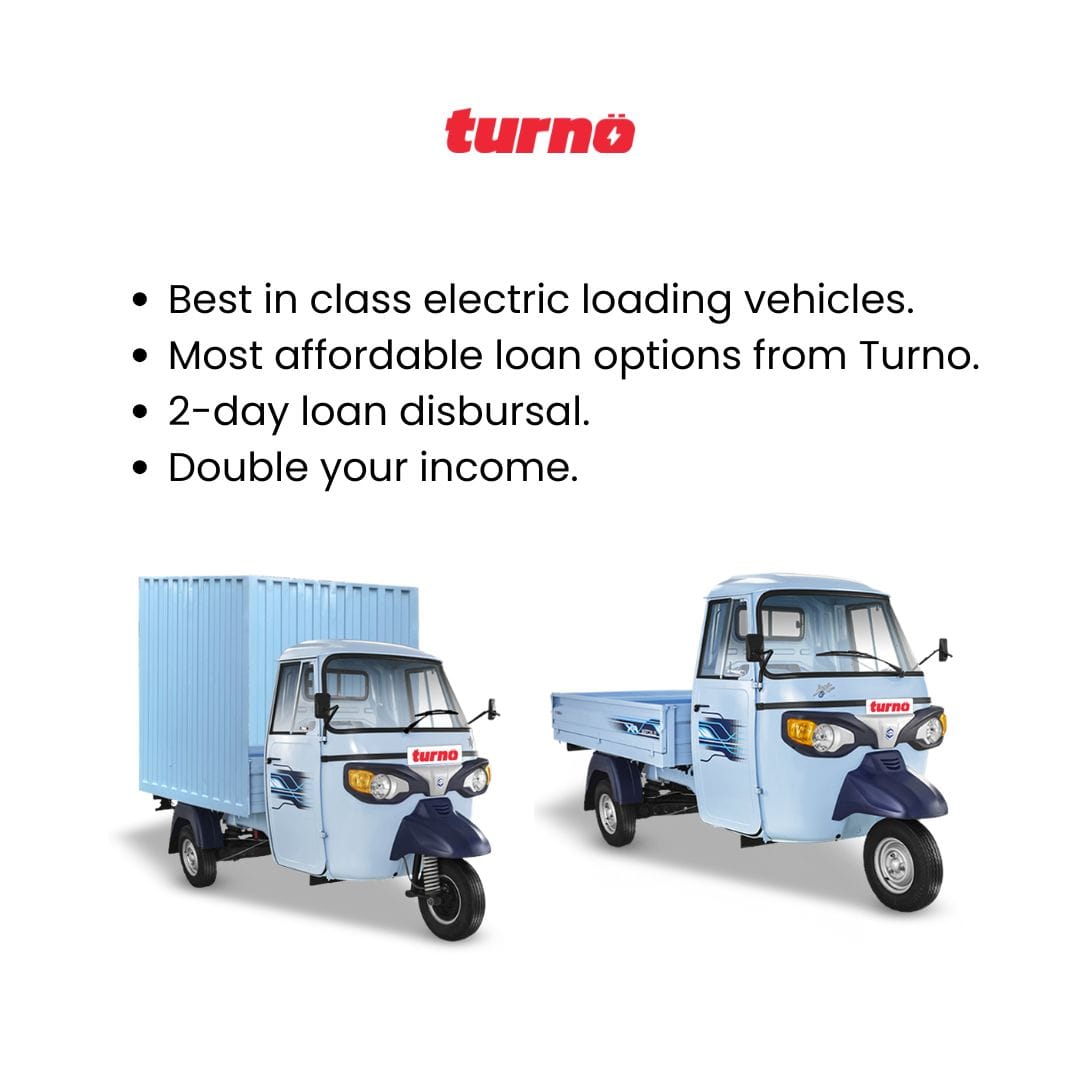The catering industry is buzzing with positive changes as businesses are increasingly adopting Goods Electric Vehicles (EVs) for on-site food delivery services. These electric loading vehicles are revolutionizing the way catering is done, providing numerous benefits that not only enhance the customer experience but also make it easier for catering businesses to operate efficiently. In this blog, we will explore the advantages of using goods EVs in the catering industry and how Turno is making the transition easier for the caterers across various cities in India.

Goods Electric Vehicles:
The traditional diesel vehicles have long been used in catering services, but they come with several limitations. Goods EVs, on the other hand, offer a more efficient alternative with their electric-powered engines, reducing harmful emissions and noise pollution. With Turno offering low downpayment and lowest interest rates, its never been so easy to won an electric goods auto.
Benefits of Goods Electric Vehicles over Diesel Vehicles in Catering:
Smooth and Efficient Food Transportation:
The adoption of Goods Electric Vehicles (GEVs) in the catering industry has revolutionized the way food is transported, offering numerous benefits that enhance overall efficiency and customer satisfaction. Unlike traditional vehicles, Goods electric autos are equipped with advanced navigation systems and electric drivetrains, enabling smooth and easy navigation through congested city streets and busy highways. This streamlined transportation process allows catering businesses to deliver food to event locations in record time frames, ensuring that the meals reach their destination promptly.
The Speedy Delivery Advantage:
With goods electric vehicles, catering businesses can promise faster delivery times, which is particularly advantageous for time-sensitive events such as weddings, corporate gatherings, and parties. The ability to transport food quickly and efficiently not only pleases customers but also enhances the reputation of the catering company, leading to increased customer loyalty and potential referrals.
Preserving Freshness and Flavor:
One of the key challenges in food transportation is maintaining the freshness and flavor of the dishes. Traditional vehicles, especially those using combustion engines, produce heat and vibration during transit, which can negatively impact the quality of the food. In contrast, electric loading vehicles provide a stable and controlled environment for transporting food items. The absence of engine heat and reduced vibration ensures that the delicate flavors and textures of the dishes remain intact until they reach their destination.
Spill-Free Deliveries for Impeccable Presentation:
Presentation is an essential aspect of catering, and spillage during transportation can ruin the visual appeal of the dishes. GEVs are designed with features to minimize the risk of spills during transit. These vehicles often come equipped with specially designed compartments and secure storage solutions, preventing food containers from moving and tipping over. As a result, the food arrives fresh, impressing clients and guests alike.
Economical Benefits and Sustainable Savings:
Although the initial outlay for GEVs could surpass that of conventional vehicles, the potential for substantial long-term savings is undeniable. Electric vehicles boast reduced operating and upkeep expenses. Their maintenance demands are less frequent, and electricity costs typically outstrip those of gasoline or diesel. Over the course of time, these accumulated savings augment the profitability of catering enterprises, rendering the adoption of GEVs a shrewd and prudent investment decision. The monthly EMIs for electric loading vehicles are approximately ₹ 15,000 rupees, while renting a diesel vehicle can cost around ₹ 40,000/- to ₹ 60,000/-. The cost-saving potential of Goods EVs makes them an attractive choice for catering businesses. Below are some more benefits of commercial electric vehicles over diesel vehicles.
User-Friendly Driving Experience:
Driving Goods EVs is a breeze, making them accessible to anyone, including micro business holders. Their user-friendly design allows catering businesses to efficiently manage deliveries and services.
Supportive for Micro Business Holders:
Goods electric vehicles empower micro business holders in the catering industry by providing them with a sustainable and cost-effective solution. These electric loading vehicles level the playing field, enabling smaller catering businesses to compete effectively.
Conclusion:
The growing adoption of Goods Electric Vehicles in the catering industry is changing the game for the better. Catering businesses are experiencing enhanced customer experience, increased efficiency, and reduced environmental impact. Electric loading vehicles offer a win-win situation, where catering services can deliver top-notch experiences while contributing to a greener and more sustainable future. As the shift towards electric mobility continues, Goods electric autos are set to become the standard choice for catering services, transforming the industry for good. With their numerous benefits over traditional diesel vehicles, Goods EVs pave the way for a more efficient, cost-effective, and ensuring that food remains fresh and spill-free during transportation.




